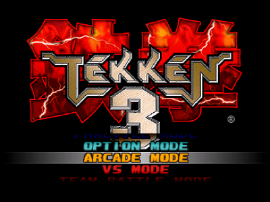Yume Penguin Monogatari (Japan)
Играйте в Yume Penguin Monogatari (Japan) онлайн в вашем браузере. Без скачивания.
О игре Yume Penguin Monogatari (Japan):
.png)
The Charming Weight-Loss Adventure of an Overweight Penguin
Yume Penguin Monogatari presents one of the most uniquely charming and unconventional premises in gaming history—the tale of Penta, an overweight penguin who must slim down to win back his girlfriend Penko from his rival Ginji. Released exclusively in Japan for the Famicom in 1991 by Konami, Yume Penguin Monogatari combines platforming, shooting, and racing elements into a cohesive adventure centered around weight management. What makes Yume Penguin Monogatari particularly distinctive is its core mechanic—Penta begins each stage overweight and must collect diet drinks to lose weight and increase mobility, while avoiding food items that cause him to gain weight again. The game is divided into several distinctive gameplay styles, with some levels featuring traditional side-scrolling platforming, others presenting overhead shooting segments reminiscent of Twin Bee, and some offering racing challenges where a slimmer Penta moves faster. As players progress through Yume Penguin Monogatari, Penta visibly transforms through three distinct body shapes—from round and slow to slim and athletic—with each form offering different abilities and movement speeds. The game's colorful visuals, catchy music, and humorous approach to its unusual theme create a memorable experience that stands out even among the creative and often quirky titles of the 8-bit era. With its innovative weight mechanics, genre-blending gameplay, and endearing protagonist, Yume Penguin Monogatari remains a fascinating cultural artifact that showcases Japanese gaming's willingness to explore unconventional concepts.
The Legacy of a Quirky Japanese Gem
Yume Penguin Monogatari was developed and published by Konami in 1991 exclusively for the Japanese Famicom, never receiving an official release outside Japan during the 8-bit era. The game was created during Konami's creative peak on the Famicom, when the company was known for developing highly polished, innovative titles that pushed the boundaries of conventional game design. The character of Penta the Penguin was not new to Yume Penguin Monogatari, having previously appeared in Antarctic Adventure and Penguin Adventure, though this title took his character in a completely new direction with its weight-loss theme. The game's unique premise reflects the distinctly Japanese gaming sensibility of the early 1990s, when developers frequently explored unconventional concepts and themes rarely seen in Western game design. While Yume Penguin Monogatari remained relatively unknown internationally for many years, the growth of interest in Japanese-exclusive retro games has brought increased attention to this unique title. Today, Yume Penguin Monogatari is appreciated by collectors and gaming historians for its innovative gameplay mechanics, charming presentation, and its status as a cultural artifact representing the creativity of Japanese game development during the 8-bit era. The game's unusual weight management theme and genre-blending approach make it a fascinating example of how developers could create engaging gameplay experiences from seemingly unlikely concepts.
Guide Penta's Transformation
What Makes Yume Penguin Monogatari a Unique Adventure
- Dynamic weight transformation system affecting Penta's abilities and speed
- Multiple gameplay styles including platforming, shooting, and racing segments
- Visual representation of weight loss as Penta transforms between three body types
- Diet drinks and food items that decrease or increase Penta's weight respectively
- Colorful, cartoonish visual style with expressive character animations
- Progressive difficulty as levels introduce more challenging obstacles and enemies
- Boss battles against rival Ginji in various mechanical contraptions
Master the Weight-Loss Journey
In Yume Penguin Monogatari, players guide Penta through various levels while managing his weight status through strategic item collection. The core gameplay revolves around collecting diet drinks to slim down while avoiding food items that cause weight gain. Penta's weight in Yume Penguin Monogatari directly affects his abilities—when overweight, he moves slowly and has limited jumping capability; at medium weight, his mobility improves; and at his slimmest, he moves quickly and can perform higher jumps. The game alternates between three distinct gameplay styles: side-scrolling platforming levels where Penta navigates obstacles and enemies; overhead shooting segments where he pilots an aircraft and fires at enemies below; and racing sections where speed is crucial for success. Throughout levels, players must maintain awareness of Penta's weight meter, strategically collecting diet drinks to improve performance while avoiding enemies who often try to force-feed Penta. Each stage in Yume Penguin Monogatari concludes with a confrontation against rival Ginji, requiring players to utilize Penta's optimal form for the challenge. This unique weight management system combined with genre-blending gameplay creates a distinctive experience among character-driven retro games of the early 1990s.
 (Beta).png)
.png)
.png)

.png)
.png)
.png)
.png)
.png)
.png)
.png)
.png)